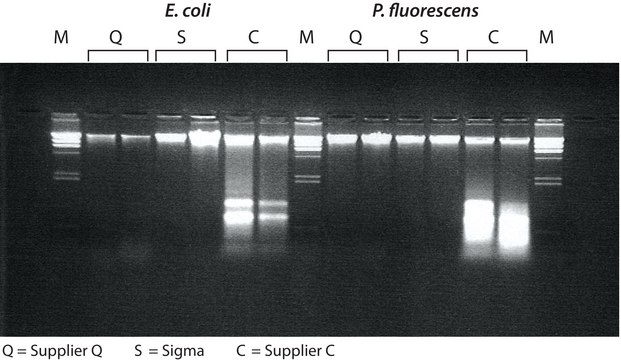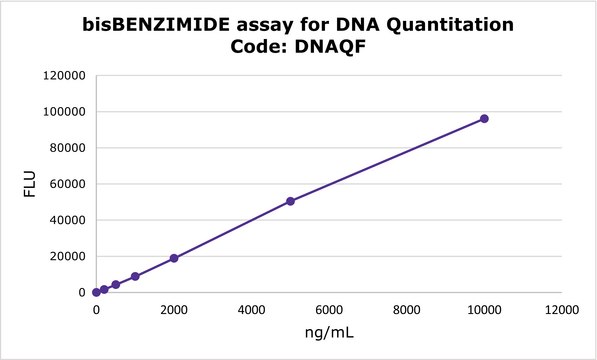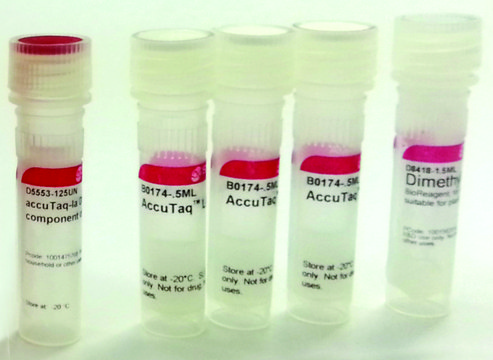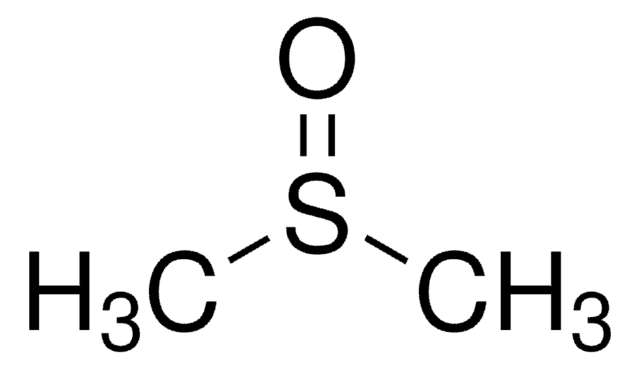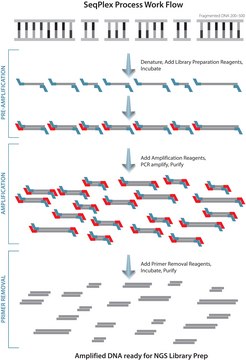T7677
L-Tyrosine Decarboxylase from Streptococcus faecalis
≥0.1 unit/mg solid
Synonym(s):
L-Tyrosine carboxy-lyase
About This Item
Recommended Products
Looking for similar products? Visit Product Comparison Guide
Application
Other Notes
Unit Definition
Storage Class Code
11 - Combustible Solids
WGK
WGK 3
Flash Point(F)
Not applicable
Flash Point(C)
Not applicable
Personal Protective Equipment
Choose from one of the most recent versions:
Already Own This Product?
Find documentation for the products that you have recently purchased in the Document Library.
Customers Also Viewed
Articles
The overall degree of methylation of a genome can be a useful measure of global regulatory changes. Measurement of this parameter is usually performed after complete digestion to the single base and then analyzed using HPLC or mass spectrophotometry. The Global DNA Modification Kit (MDQ1), allows the researcher to monitor DNA methylation using a format similar to a sandwich ELISA assay.
Protocols
Chromatin Immunoprecipitation qPCR for studying gene regulation across conditions.
Our team of scientists has experience in all areas of research including Life Science, Material Science, Chemical Synthesis, Chromatography, Analytical and many others.
Contact Technical Service


